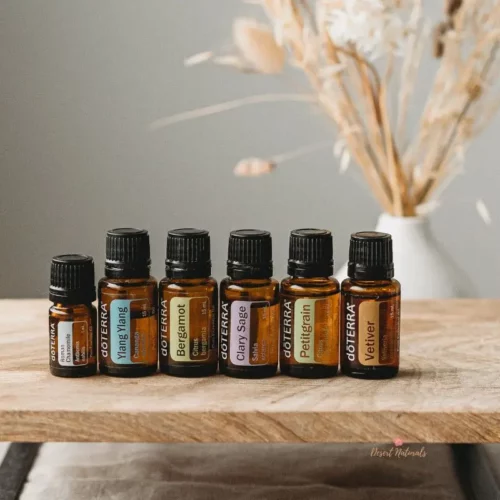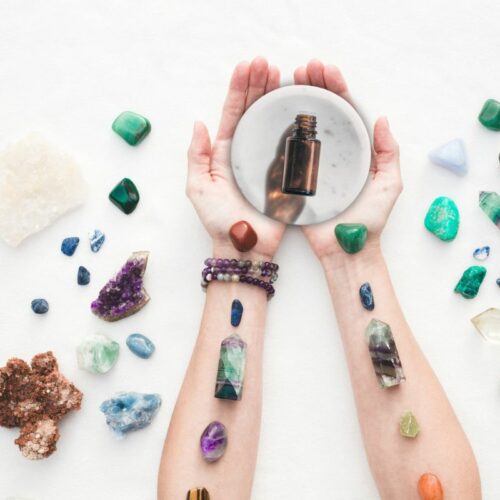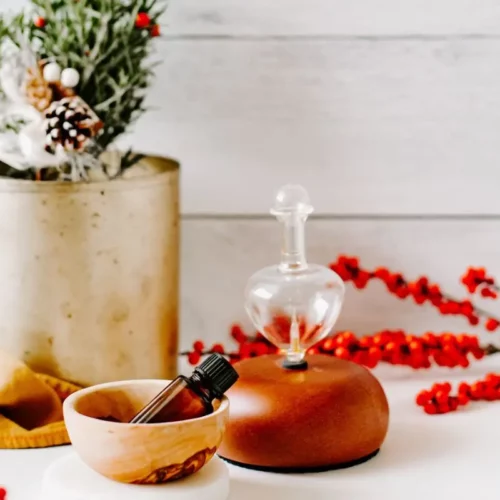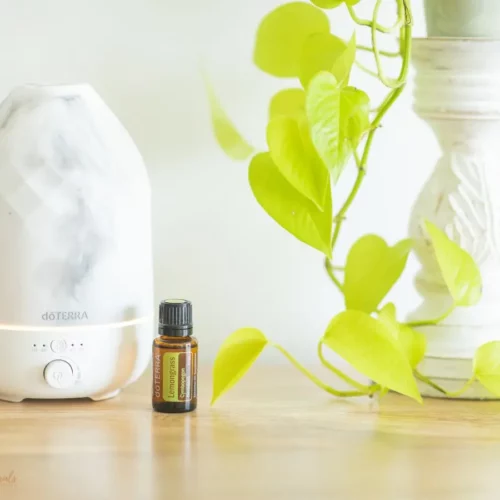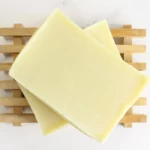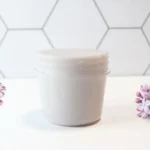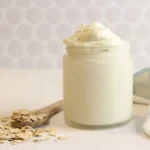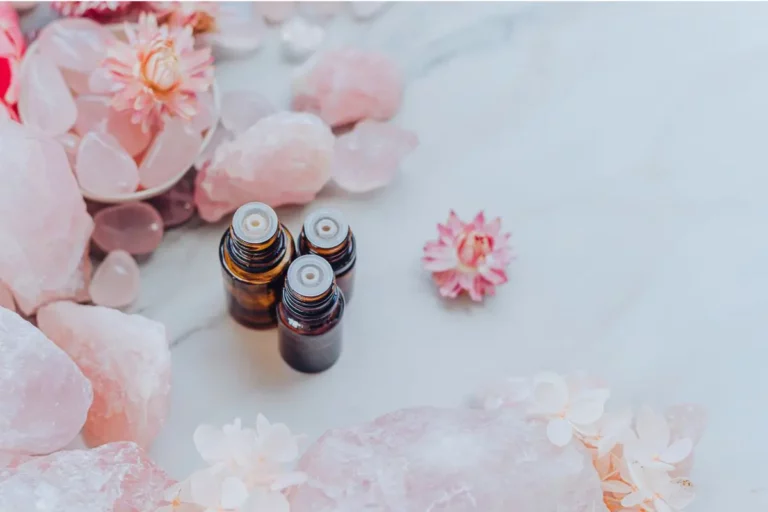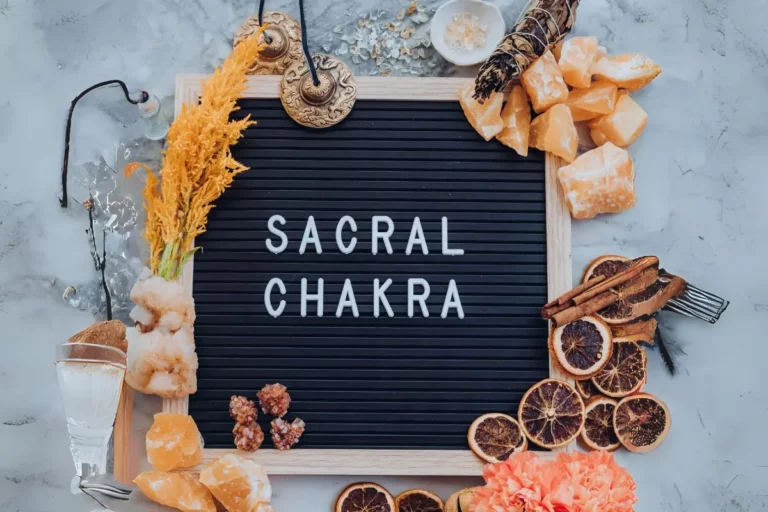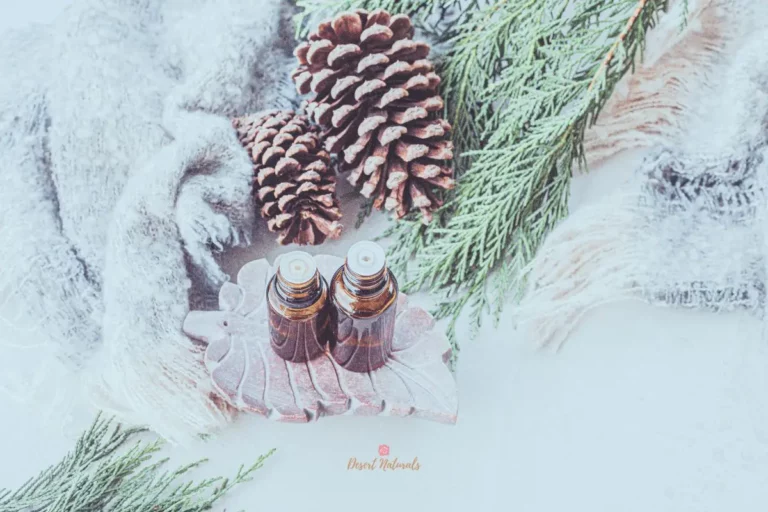Best Essential Oils for Meditation, Diffuser Blends & Recipes
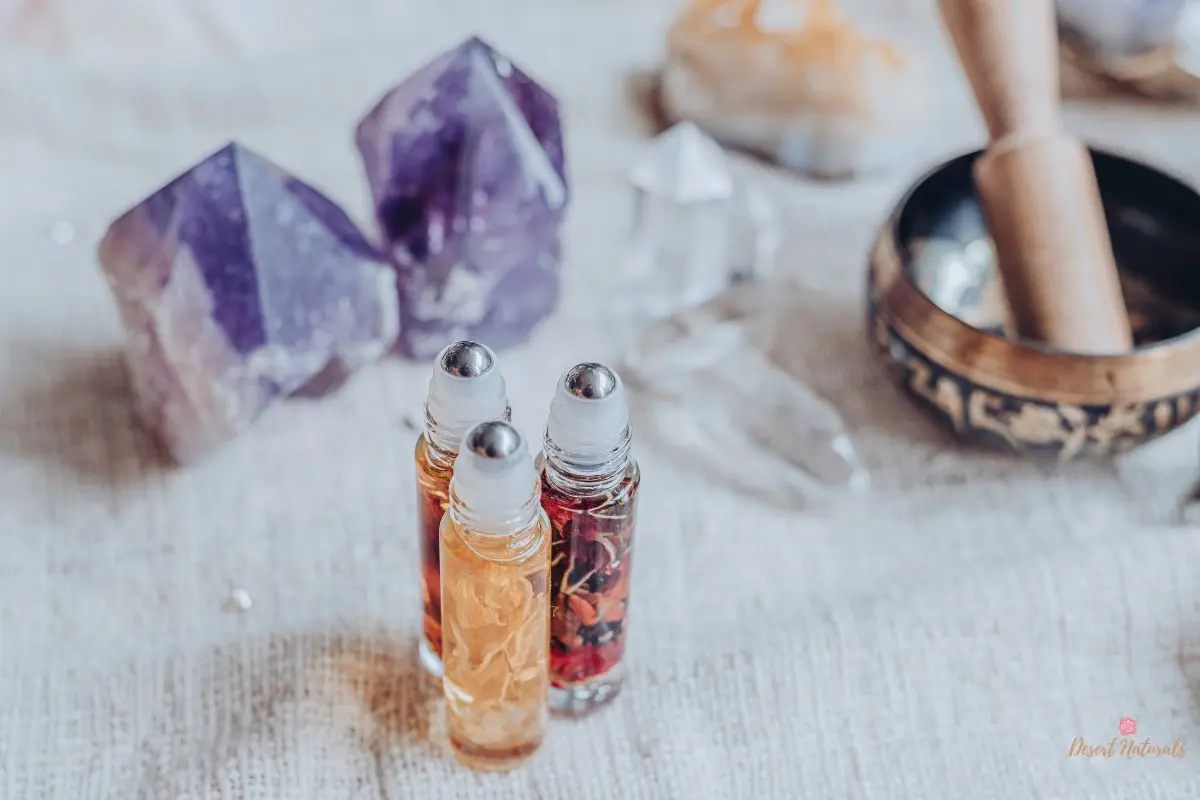
Meditation is a popular practice that can enhance mental clarity, focus, and overall well-being. One way to elevate your meditation experience is by incorporating the use of essential oils. Essential oils are a natural way to help create a calming and peaceful environment, improve focus, and alleviate stress during your meditation sessions.
Pin for later
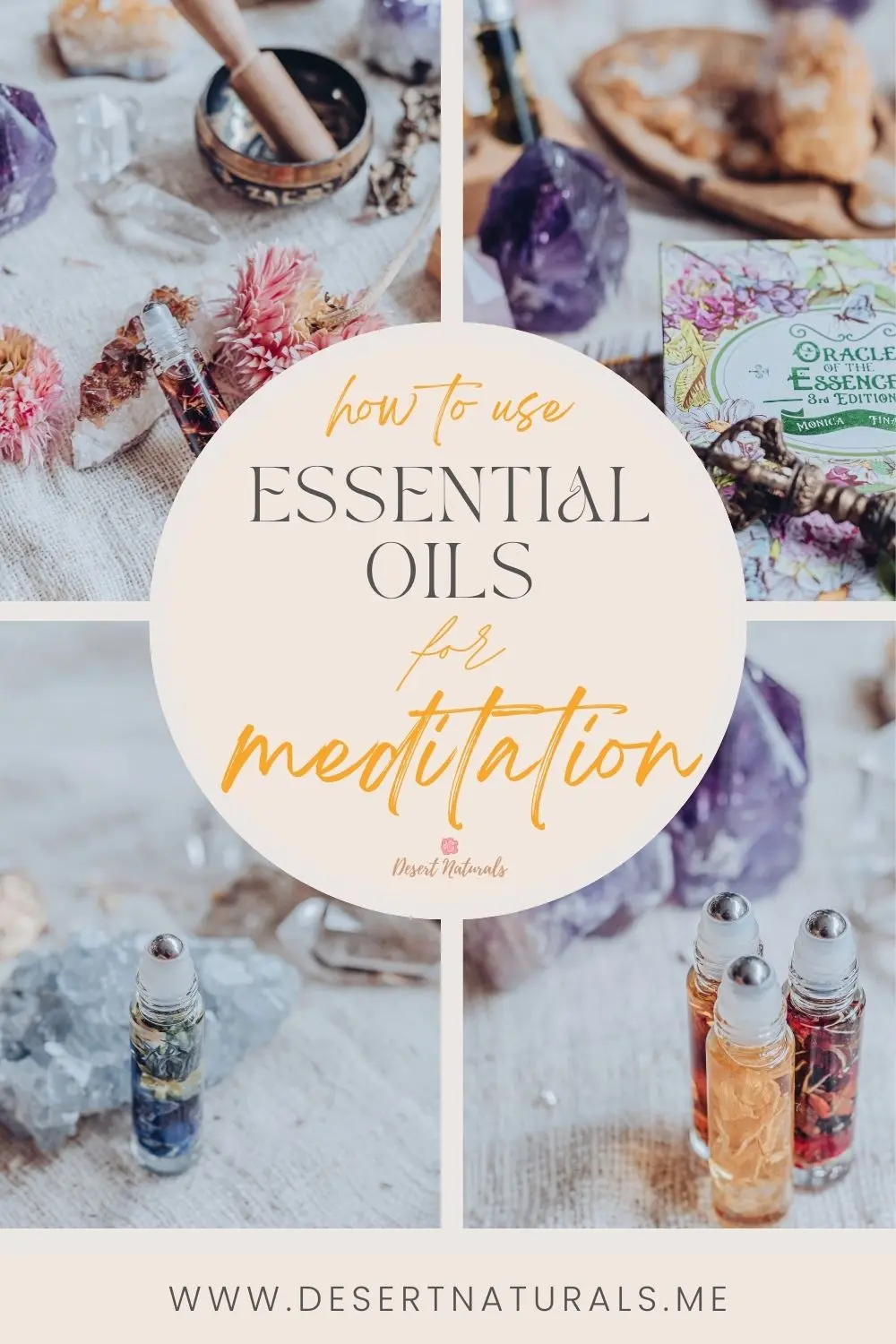
Essential oils have been used for centuries, promoting relaxation and spiritual awareness among various cultures and traditions. By selecting the right oils, you can transform your meditation space and develop a deeper connection with your mind and body.
As you explore the world of essential oils for meditation, consider oils like vetiver, lavender, and frankincense, known for their grounding and soothing properties. Integrating these aromas into your practice can facilitate a more enriching and balanced meditation experience, ultimately nurturing your mental, emotional, and spiritual well-being.
Disclaimer: These statements have not been evaluated by the Food and Drug Administration. This information is not information is not medical advice and not intended to diagnose, treat, cure, or prevent disease. If you have a medical condition, please consult your doctor before using essential oils.
I use affiliate links in this article. If you click a link and make a purchase, I may earn a small commission which goes towards the cost of running this website.
Benefits of Essential Oils for Meditation
If you want to increase the benefits of meditation, add essential oils to your practice! Essential oils are a powerful tool to enhance your practice by providing a relaxing and calming atmosphere.
They can help reduce stress, increase focus, and improve your overall mood during meditation sessions.
The pleasant scents of these oils can make it easier for you to enter a meditative state and maintain it for a longer period of time.
When used correctly, essential oils can improve your overall meditation experience and contribute to the development of a healthy meditation routine.
By incorporating essential oils into your practice, you allow yourself to more deeply connect with your senses and invite a greater sense of peace and tranquility into your sessions.
Pin for later
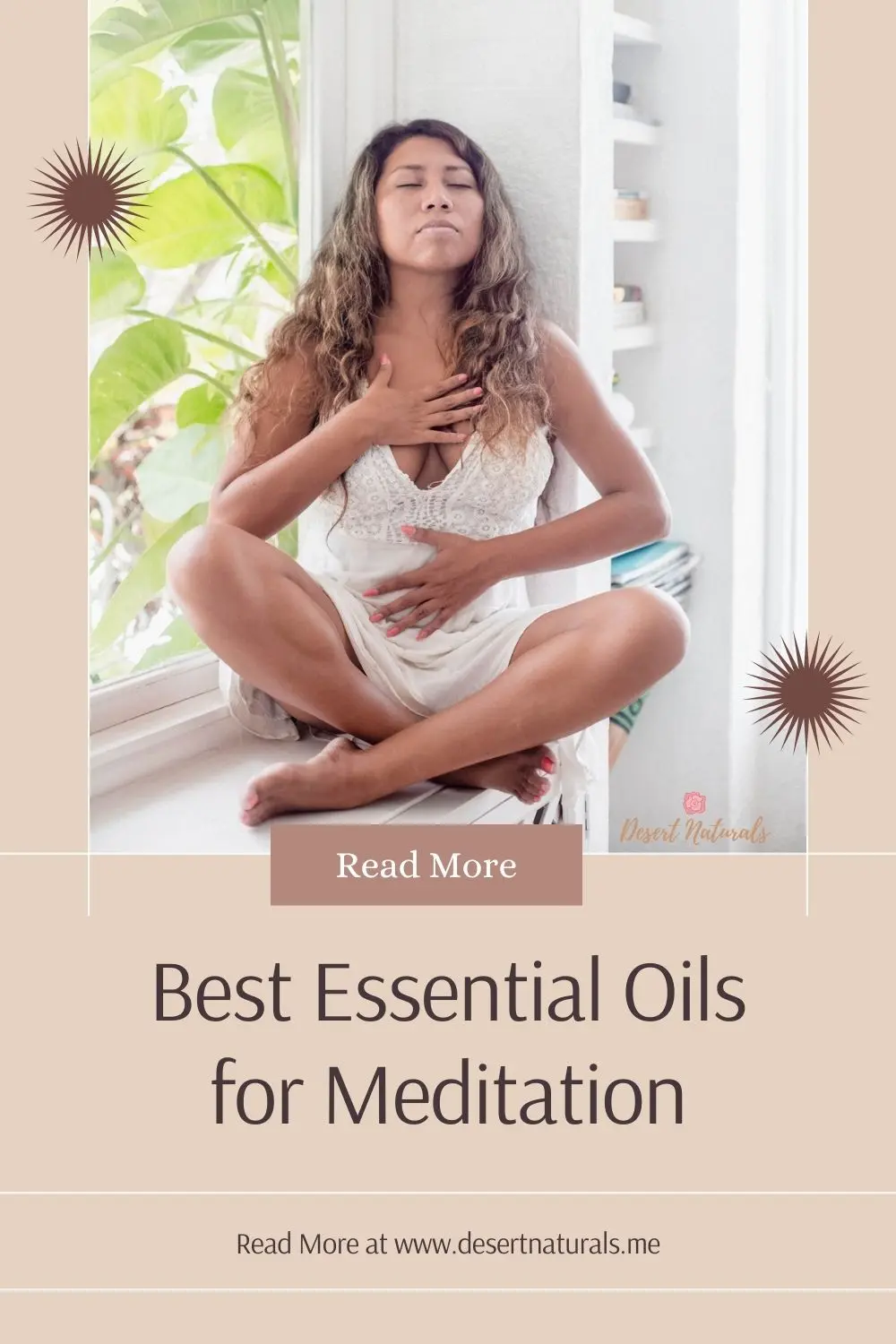
Best Essential Oils for Meditation
There are several essential oils that are popular choices for meditation. Here are a few of the most popular essential oils for meditation:
- Lavender: Lavender is a versatile essential oil known for promoting relaxation and reducing stress. With its calming properties, it is a great option for creating a soothing environment, especially when meditating before sleep.
- Emotional Balance: Lavender oil is known for its harmonizing effect on emotions. It can help balance your mood and promote a sense of emotional well-being. This emotional stability is essential for achieving a meditative state free from distractions.
- Connection to the Divine: Many individuals use lavender oil to enhance their spiritual experiences during meditation. Its calming and grounding properties can facilitate a deeper connection to one’s inner self or higher power.
- Clearing Negative Energy: Lavender oil is often used in energy cleansing and purifying rituals. By diffusing the oil or anointing it on your body before meditation, you can create a sacred space free from negative energies that might hinder your practice.
- Heightened Intuition: Some believe that lavender oil can stimulate the third eye chakra, which is associated with intuition and insight. Using this oil in meditation may help you tap into your inner wisdom and enhance your spiritual awareness.
- Aid in Visualization: Visualization is a powerful meditation technique, and lavender’s soothing scent can aid in creating vivid mental images. Whether you’re manifesting your desires or exploring your inner world, lavender oil can enhance your ability to visualize.
- Chakra Balancing: Lavender oil can be used to balance various chakras, particularly the heart and crown chakras. When these energy centers are in harmony, it’s easier to experience a sense of oneness and unity during meditation.
- Enhanced Spiritual Awareness: The calming and centering effects of lavender oil can lead to heightened awareness and mindfulness. This heightened awareness can deepen your spiritual practice and help you reach altered states of consciousness.
- Frankincense: Frankincense oil has been used for meditation for thousands of years and is known for increasing spiritual awareness. It is an ideal choice for creating a peaceful atmosphere during your meditation sessions.
- Cleanses the Spirit
- Promotes a sense of enlightenment
- Boosts faith in self
- Strengthens awareness of connection to higher, spiritual self consciousness.
- Promotes feelings of being mentally balanced, grounded, and receptive to new experiences and thoughts.
- Reduces stress, pain, nasal congestion, and inflammation, which can be distracting to meditation.
- Sandalwood: With its warm, woody scent, sandalwood essential oil can help quiet the mind and deepen the meditative state. Its soothing and grounding properties make it an ideal choice for meditation.
- Helps to mend emotional and spiritual wounds.
- Inspires emotional openness and promotes ability to trust.
- Supports feeling of being grounded.
- Cleanses the mind of negative thoughts and sentiments that diminish mental clarity.
- Quiets inner noise/mental chatter, helping to focus on breathing.
- Promotes feeling of a calm body at peace.
- Encourages rest.
- Supports alertness.
- Ylang Ylang: Known for its ability to uplift the mood and reduce anxiety, Ylang Ylang essential oil is another great essential oil for meditation. Its sweet, floral scent can create a feeling of joy and relaxation, helping you make the most of your practice.
- Neroli
- Promotes self acceptance, love, courage and personal responsibility.
- Encourages creative energy.
- Stimulates determination to practice spirituality regularly.
- Centers the mind and body.
- Strengthens mental clarity, mindfulness, as well as a sense of contentment and serenity.
- Reduces sadness, anxious feelings, and physical discomfort, which can be distracting to meditation and may interfere with the ability to get restful sleep.
- Vetiver Vetiver essential oil is an excellent choice for meditation due to its grounding and calming properties. When diffused or applied topically, its earthy, woody scent helps create a serene atmosphere, promoting a sense of inner peace and focus, making it an ideal companion for your meditation practice. Additionally, its deep-rooted nature is thought to symbolize stability and balance, further enhancing its suitability for enhancing mindfulness and tranquility during meditation sessions.
- Helps the wandering mind to concentrate during mindfulness practices.
- Has soothing and calming effects on the body and mind.
- Supports restful sleep.
- Helps to ground the spirit.
- Inspires calmness and quietude of the mind to support concentration.
- Encourages the body and mind to wind down after a demanding day.
- Reduces anxious feelings of aggression, low mood, fear and insecurity.
Remember to always follow safety guidelines when using essential oils during meditation. Dilute them properly using a carrier oil or a diffuser, and familiarize yourself with any possible contraindications or sensitivities. By incorporating essential oils into your meditation routine, you can enhance your practice, increase mindfulness, and create a more relaxing and effective experience.
Which Essential Oils Are Good To Use for Meditation
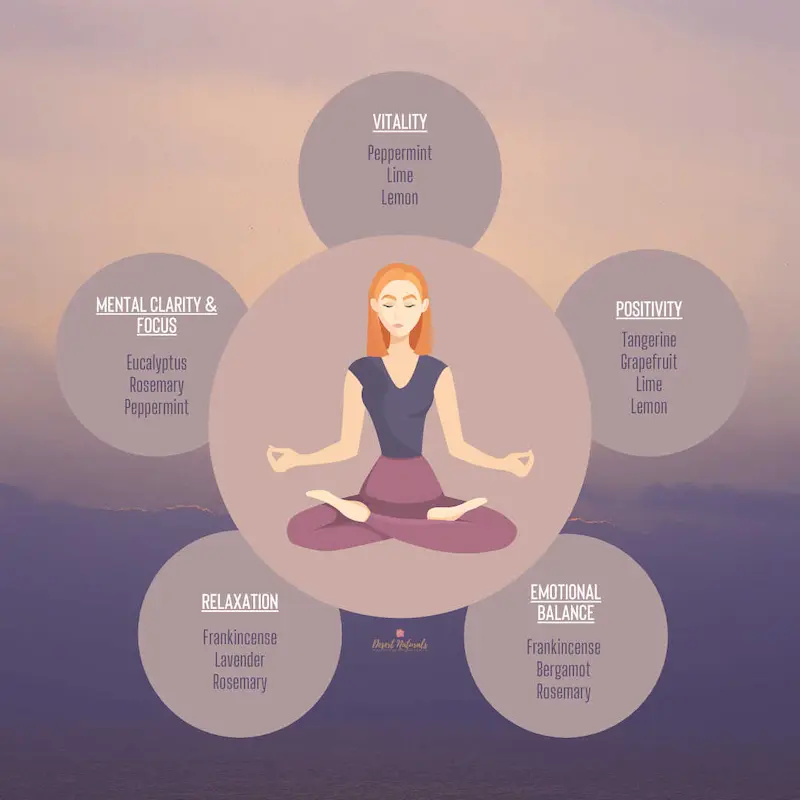
When choosing essential oils for meditation, it’s important to understand the different types of oils and their potential benefits. In this section, we will cover three categories: Mental Clarity and Focus Oils, Calming and Relaxation Oils, and Energizing and Balancing Oils.
Mental Clarity and Focus Oils
To enhance your meditation experience and improve concentration, you might consider using essential oils known for their mental clarity and focus properties. These oils include:
- Frankincense: Often used in various spiritual practices, frankincense can help increase spiritual awareness and focus during meditation.
- Peppermint: This invigorating oil can stimulate your senses and promote mental clarity, making it a great addition to your meditation routine.
- Lemon: Known for its uplifting properties, lemon oil can enhance focus and concentration while promoting a positive atmosphere.
Calming and Relaxation Oils
For a more calming and relaxing meditation experience, consider incorporating these essential oils into your routine:
- Lavender: Renowned for its soothing properties, lavender is an excellent choice to help calm the mind and promote relaxation.
- Chamomile: Known for its effectiveness in reducing anxiety, chamomile can help create a serene atmosphere during meditation.
- Ylang Ylang: This floral essential oil is often used for stress relief and promoting relaxation, making it an ideal option for meditation.
Energizing and Balancing Oils
If you’re looking to invigorate your meditation session and create a sense of balance, try incorporating these essential oils:
- Orange: With its uplifting and energizing properties, orange oil can help boost your mood and support emotional balance during meditation.
- Sandalwood: This aromatic oil is known for its grounding and balancing properties, making it an excellent choice for meditation and spiritual practices.
- Patchouli: With its earthy aroma, patchouli can promote an atmosphere of stability and harmony, perfect for meditation.
By carefully selecting essential oils tailored to your needs, you can enhance your meditation experience and enjoy the numerous benefits these oils have to offer. Remember to always use essential oils safely and follow proper guidelines for dilution and application.
Usage Tips and Techniques
Inhalation and Diffusers
Inhalation is one of the most effective ways to experience the benefits of essential oils for meditation.
Using a diffuser is a popular method, as it disperses the oils into the air, creating a calming atmosphere. To use a diffuser, simply add a few drops of your chosen essential oil (such as frankincense, lavender, or sandalwood) to water, following your device’s instructions. Alternatively, you can use an aromatherapy inhaler for a more personal experience.
See our Meditation Diffuser Blends below
Topical Application
Applying essential oils directly to your skin can enhance your meditation practice.
Before doing so, dilute the essential oil with a carrier oil, such as almond oil or jojoba oil, to avoid skin sensitivities.
To use essential oils for meditation in this way, apply the diluted oil to pulse points, like your wrists or behind your ears.
You can also massage the oil into your temples or the back of your neck for a soothing effect.
Here is a roller bottle recipe you can use which is wonderful to apply before you start your meditation
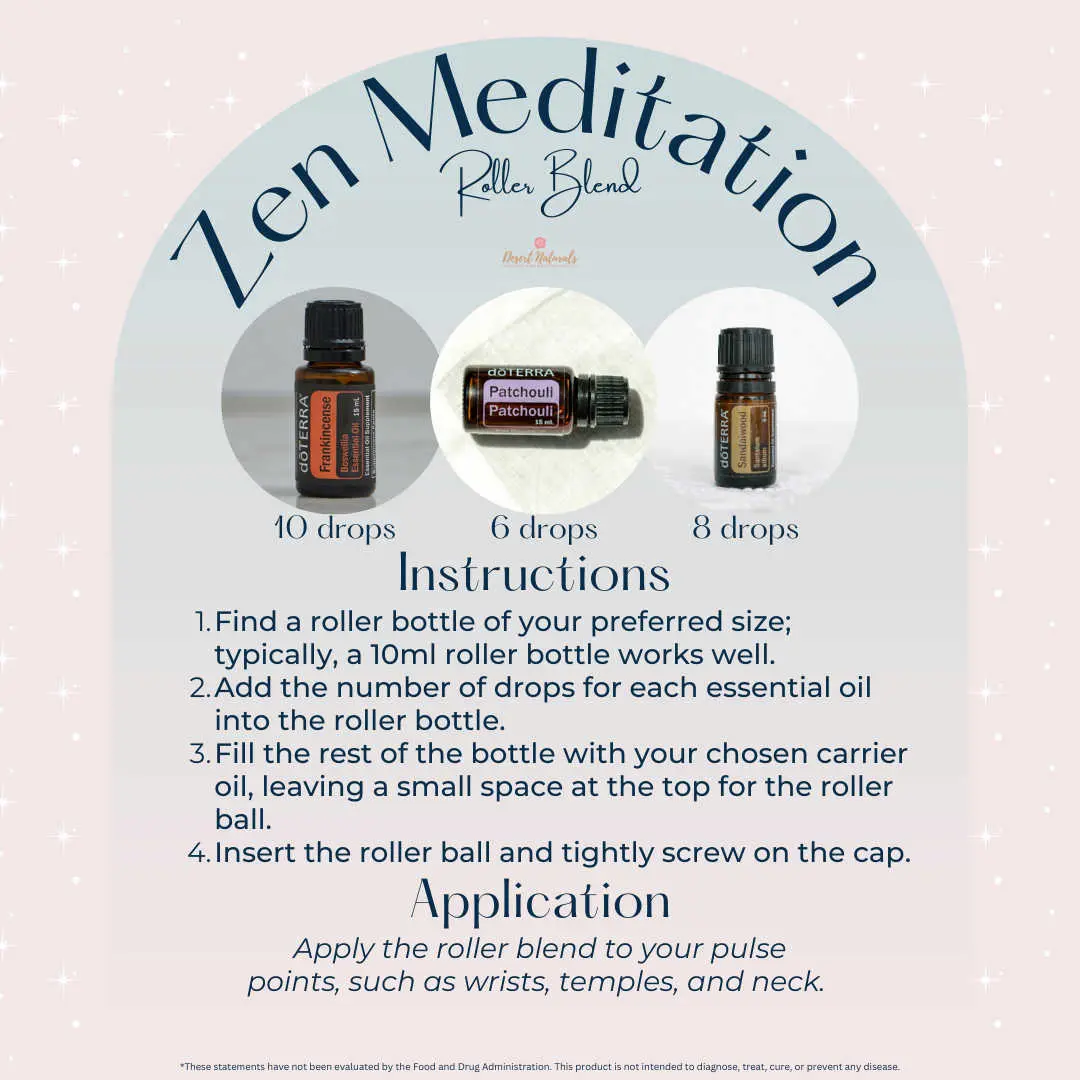
Aromatherapy Jewelry and Accessories
Aromatherapy jewelry, like diffuser necklaces, is another way to incorporate essential oils into your meditation routine. These accessories usually feature a locket or pendant that holds a small felt pad, onto which you can add a few drops of your favorite meditation essential oil.
As you wear the jewelry, the scent of the oil stays with you, promoting relaxation and focus during your practice.
By incorporating these techniques into your meditation routine, you will be able to harness the
This Lava Stone bracelet is a best seller on Amazon and a perfect example of diffuser jewelry:
- ESSENTIAL OIL DIFFUSER BRACELET – The lava beads were absorbent and held the fragrance for hours, it can be a great essential oil diffuser, just add a few drops of your favorite essential oils (essential oil not included) on the porous lava rock stone that you can smell the essential oil which will last all day and help you release pressures.
Meditation Essential Oil Blends & Recipes for Different Uses
When it comes to meditation, incorporating essential oils can enhance your experience and help you reach a deeper state of focus and relaxation. In this section, we’ll explore different essential oil blends that you can use in your meditation practice.
Meditation Blend For Relaxation and Calmness:
Try this soothing blend to help you release tension and promote a sense of calm during your meditation sessions. Combine the following essential oils in your diffuser:
- 3 drops of Lavender essential oil
- 2 drops of Sandalwood essential oil
- 2 drops of Ylang Ylang essential oil
Lavender essential oil is known for its calming properties, while sandalwood and ylang ylang are excellent for promoting relaxation.
Meditation Blend For Focus and Concentration:
Boost your focus during meditation with this concentration-enhancing essential oil blend. Mix the following oils in your diffuser:
- 4 drops of Cedarwood essential oil
- 3 drops of Frankincense essential oil
- 2 drops of Vetiver essential oil
Cedarwood is known to help improve focus, while frankincense and vetiver essential oils can have grounding effects to keep your mind centered.
Meditation Blend For Emotional Balance:
This blend is designed to support emotional balance during meditation. Combine these essential oils in your diffuser:
- 3 drops of Frankincense essential oil
- 3 drops of Patchouli essential oil
- 2 drops of Ylang Ylang essential oil
Both frankincense and patchouli essential oils have calming and grounding properties, while ylang ylang can help balance emotions and create a sense of peace.
As you experiment with these essential oil blends, feel free to adjust the quantities or combine different oils to create your own unique blend that suits your meditation needs. Remember to always use a quality essential oil diffuser and follow safety guidelines for essential oil use.
Meditation Diffuser Blends
Pin for later
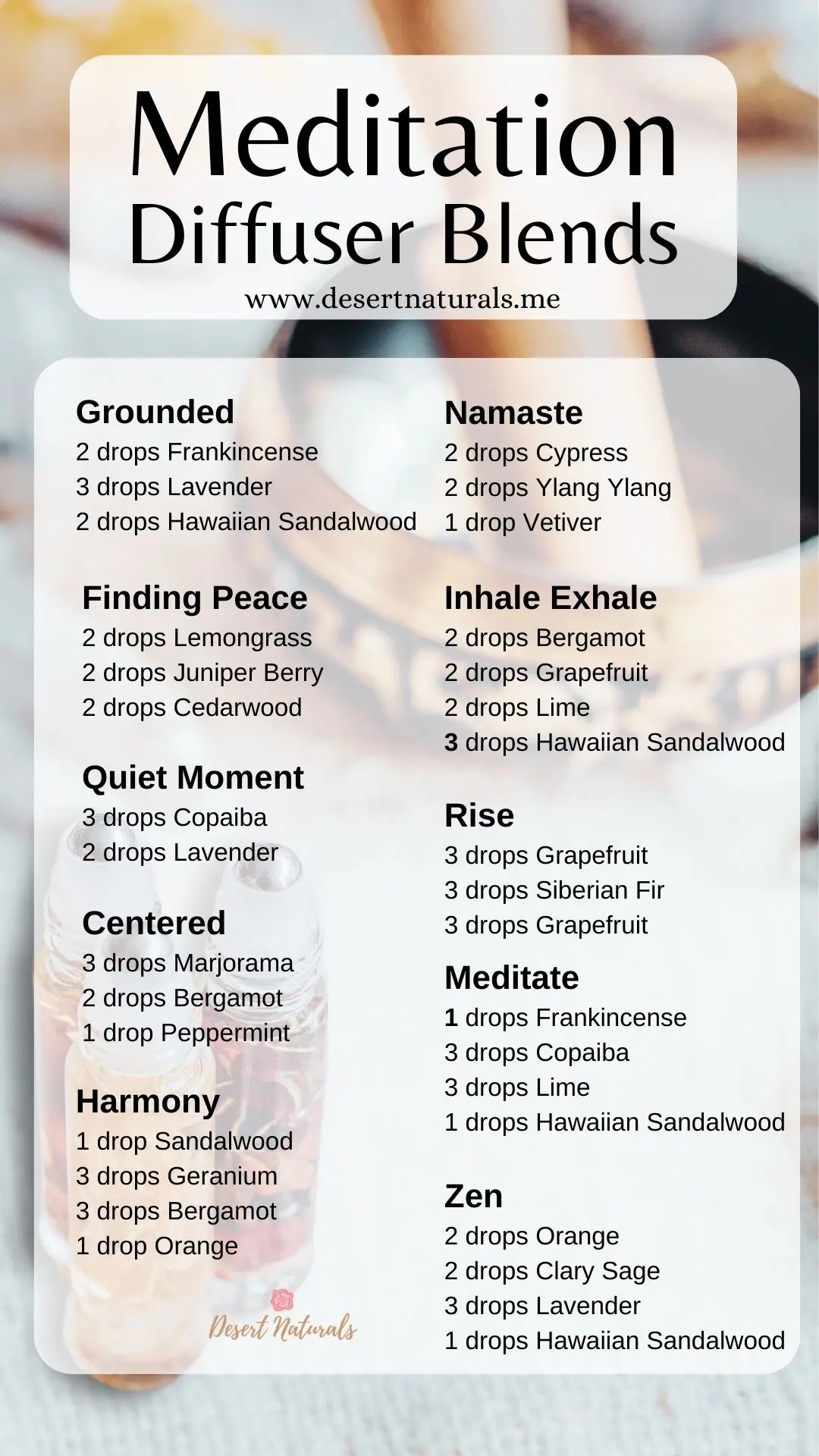
Safety Precautions and Dilution
Diluting Essential Oils for Safety and Effectiveness
It’s important to dilute essential oils properly for safe and effective use. When incorporating essential oils into your meditation routine, you should always mix them with a carrier oil or another dilution agent. For infants and children, add just 1 to 3 drops of essential oil per ounce (approximately 30 ml) of the dilution agent to maintain a concentration of 0.5% or lower, as their skin is often more sensitive than that of adults [^1^].
For adults, the recommended dilution depends on your skin type and condition. Some essential oils may cause irritation or sensitization, especially when used topically. To avoid adverse effects, always do a patch test on a small area of skin before applying the diluted essential oil to larger areas.
In addition to using carrier oils, other methods of applying essential oils during meditation can include:
- Diffusing the essential oil in the surrounding area
- Wearing a diffuser necklace or bracelet
- Using an aromatherapy inhaler
How to Avoid Adverse Reactions
To prevent adverse reactions, take the following safety precautions when using essential oils for meditation:
- Always use high-quality, 100% pure, unadulterated essential oils from a reputable seller.
- Be aware of the possible sedative effects of some oils, such as Lavender, and avoid using them when driving or operating heavy machinery.
- Avoid using essential oils with known irritating or allergenic properties if you have sensitive, damaged, or diseased skin.
- Never apply undiluted essential oils directly to the skin. Instead, follow the proper dilution guidelines mentioned above.
- Monitor your stress relief progress during your meditation practice. If you notice any adverse effects, discontinue the use of the essential oil immediately.
By following these guidelines, you can effectively incorporate essential oils into your meditation routine while ensuring your safety and promoting stress relief.
Incorporating Essential Oils into Your Meditation Routine
Incorporating essential oils into your meditation routine can greatly enhance the experience by promoting calm, relaxation, focus, and grounding. These oils help to create a positive, spiritual atmosphere that supports achieving inner peace and a deeper meditative state. The use of essential oils can also aid in stress relief, sleep improvement, and healing of both the body and mind.
To get started, explore different essential oils that resonate with your personal needs and preferences. Some popular choices include Roman chamomile for its calming effect, lavender for relaxation and aiding in sleep, and frankincense for promoting mental clarity and focus during meditation. Experiment by taking a deep breath of the oil’s scent and notice your reactions before incorporating it into your routine.
When it comes to using essential oils during meditation, you have several application methods at your disposal. You can directly inhale the oil, diffuse it in your meditation space, wear scented jewelry, apply it onto your temples, wrists, or any pulse points as a roller bottle blend, or even create a relaxing room spray. Always remember to dilute essential oils with a carrier oil if applying them onto your skin, as concentrated oils can cause irritation or reactions.
As you practice meditation with essential oils, remember to focus on your breathing, feelings, and sensations. Clear your mind of distractions and allow the scents to envelop your senses, connecting you to your spiritual practice and self-care routine. This holistic approach to well-being can provide stress relief, enhance your memory and alertness, and foster a sense of love and connection with the plant sources these oils are derived from.
Maintaining a consistent meditation routine with essential oils can help solidify the positive effects in your daily life. By pairing the right oil with the right technique, you can continually experience the harmonizing benefits of this powerful combination, improving your overall well-being and life balance.
Before You Go, See What’s New On The Blog

Dawn Goehring
Dawn Goehring is the founder of Desert Naturals where she writes educational articles on essential oils, DIY’s on natural beauty products, homemade cleaners, and provides related essential oil accessories like planners, trackers, tshirts, and custom designed essential oil storage. She has been featured in articles on Porch.com, Redfin.com, MommyOnPurpose and more.
Dawn has earned an aromatherapist degree and has earned a doTERRA essential oil specialist certification which is a fancy way of saying she has learned a lot about the chemistry of essential oils and how they work in the body.


